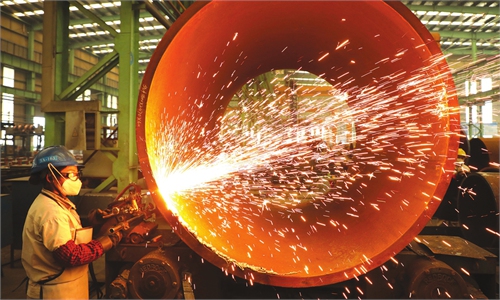The Dalian Commodity Exchange (DCE) attributed the recent sharp fluctuations in iron ore prices to fundamentals of supply and demand, noting that diffuse group of buyers with weak bargaining power haven't formed a joint force, according to a release on Sunday night.
On Friday, the Iron ore Platts index hit $164.15 a ton, up $70.95 a ton since the start of the year, or 76 percent, its highest level in nearly nine years. The price rose by $31.1 per ton, accounting for 43.8 percent of the annual rise in the 14 trading days since December.
"The rise is so fast and large that it has deviated from the fundamentals of supply and demand and greatly exceeded the expectations of steel mills, showing obvious signs of capital speculation," Luo Tiejun, vice president of China Iron and Steel Association said at an industry conference.
However, over the first 11 months of 2020, iron ore futures transactions and holdings have declined year-on-year without capital speculation on a large scale, the DCE said, adding that the futures price has been lower than the international market price and the domestic spot market price.
The DCE calls for an improving pricing mechanism, which requires joint efforts from multiple parties. It is necessary for the futures industry to work together, improve the market balance mechanism, and establish a new trade pricing mechanism through the futures market.
Luo suggests that China should adopt comprehensive measures to ensure the supply of iron ore, establish a new pricing mechanism, improve futures market rules and further strengthen supervision, so as to speed up the resolution of iron-ore related problems and build a strategic security support system for China's iron ore resources.
The DCE said it will continue to strengthen monitoring of the iron ore futures market, and implement trading limits, raise transaction costs in a timely manner, aiming to prevent possible overheating of transactions and severely crack down on illegal activities.

